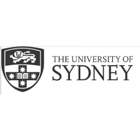The combined Bachelor of Science and Master of Nursing program cultivates the critical thinking skills and breadth of the sciences alongside the expertise and experience to become a registered nurse. It provides a wide range of career opportunities across both clinical and non-clinical settings. As a science and nursing student, you will learn from our leading academics from across the sciences and healthcare disciplines. The Bachelor of Science emphasises fundamental principles and discovery research underpinned by critical analytical capabilities. You can major in one of many areas of science, with elective units allowing you the flexibility to explore different branches and interests. You will gain an understanding of the impact of nursing practice within local and global health contexts, and across changing healthcare systems. You can complete this combined degree program in four years of full-time study, after which you will graduate with two qualifications. Upon graduating will be eligible to apply for registration with the Nursing and Midwifery Board of Australia. With a diverse range of experience and expertise, you will be highly employable in both clinical and non-clinical settings. Ranked 15th globally by subject area, the University of Sydney is a world leader in nursing education and research. Our Faculty of Science is ranked in the top 50 in the world for natural science, and you will learn in our state-of-the-art facilities including the Sydney Nanoscience Hub and the Charles Perkins Centre, with its focus on obesity, diabetes and cardiovascular disease.
Pharmacology is concerned with the study of drugs and the key role they play in the treatment of most human diseases. Increasingly, doctors rely on drugs not only to cure disease, for example antibiotics and infections, but also in the prevention of diseases, such as lipid lowering drugs and heart disease. A major in pharmacology will give you a thorough knowledge of the discovery, development and testing of drugs, and its importance to the future of medical research and practice. In this major you will learn about the mechanisms of drug action, drug absorption, distribution, metabolism and elimination, drug activity and chemical structure, the effect of drugs on body systems, the toxic effects of drugs and more.
With a major in pharmacology, you could pursue a career as a pharmacologist who discovers, designs and tests drugs. Some pharmacologists extract new drugs from plants and other living sources, some design and synthesise new chemicals for use as drugs. You can find pharmacology roles in many different organisations: basic pharmacology research occurs in both universities and in pharmaceutical companies. Pharmacologists play key roles in both the conduct an analysis of these trials and in reviewing them for government before a drug is allowed on to the market. A special group of pharmacologists - toxicologists - play a particularly important role in the evaluation of the safety of drugs and other chemicals which may affect humans.





